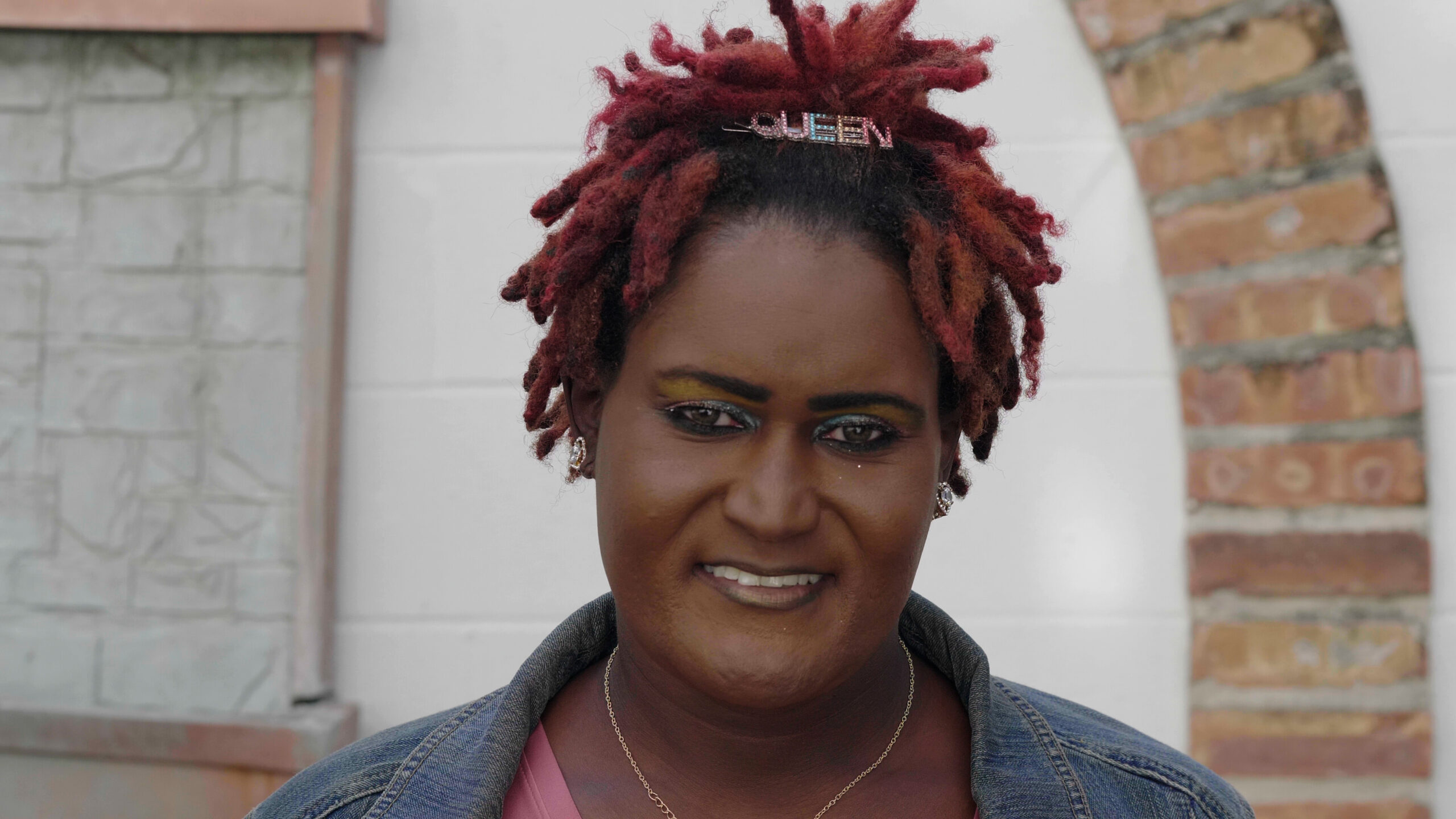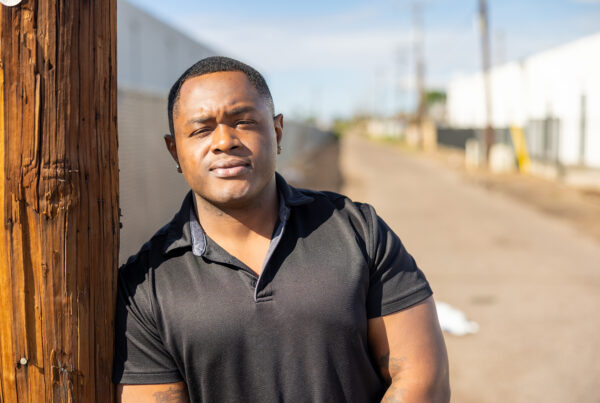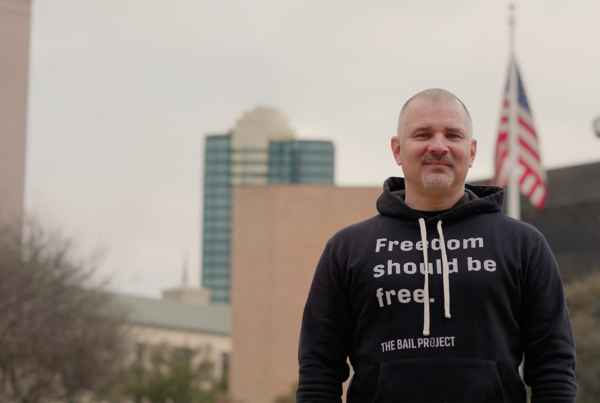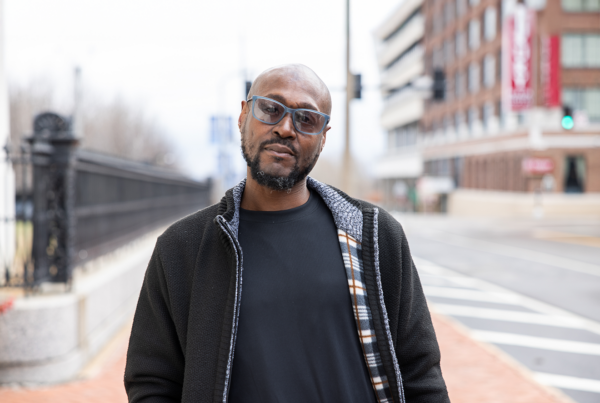Video Transcript
You know me being transgender and my family not having the finances to bond me out, you know it was real stressful, it was real hurtful, it was real scary. My name is Vita. I’m 39 years old and my pronouns are she and her. I’m a very loving person. Easy to get along with but I would say hard to please. I’ve lived in New Orleans all my life.
Living in New Orleans is wonderful. Our most amazing time is Mardi Gras time. It’s like people from all over the world come. The food is good, the parades are awesome, it’s wonderful. I was incarcerated in uh, it’s called OJC, Orleans Justice Center. I was there for 10 months. I got a chance to meet some pretty interesting people and hear a lot of their stories were basically similar to mine’s. I never was in a type of person to be in the legal field, but New Orleans is also known for a lot of illiteracy and I was able to help a lot of people in there be able to talk to their lawyer with common sense and you know, get in the courtroom and fight for themself and just not give up because New Orleans has a very high percentage rate of plea bargains. You know usually people get in there and they are, they’ll choose guilty to go home. I’ve did it before. It’s not like you’re actually guilty. You know you didn’t do it, you know you can beat the charge, but you want to go home. You know you don’t want to be in there you don’t want to sit those 60 days and wait to see uh if they’re going to accept the charge or sit there and fight that charge for maybe six months to a year.
Most people don’t have the funds you know to be able to bond themself out. Most people in this city like you know that are being arrested are people that’s living in poverty. You know, and most people they commit those crimes because they’re in poverty. And you know you take that conviction and it hinders you. It hinders you badly. Because when and if you was to mess up, now you have that on your record and now they’re looking at you like you know you’re really like, you’re really a mess up so we have to get rid of you. We have to put you away. But I just feel like you know I’m tired, I’m tired of being put in the situation to where I know I was not wrong. So I’m just, I’m not going to accept it. I’m not going to accept it. I’m going to fight it to the bitter end.
I am truly truly thankful for The Bail Project. I am very grateful and thankful to be a chosen and blessed one to have them there for me in my time of need. Because you know, my family just couldn’t do it. My bond was extremely too high. You know they just couldn’t do it. And my health is not as up to par as it seems to be on the outside, so with underlying illnesses uh yeah. COVID-19 is real scary. It’s real deadly and in the beginning I didn’t take it real serious but once I realized that they had a bail fund that was coming to get me out, and my lawyer came and she talked to me, I actually sit there and I cried with her because I thought well, am I being released out of jail to go home and die? Or they’re releasing me because they don’t want me to die in here, you know? And it’d be a lawsuit for my family? Like what’s this it really have to be serious like, it just it was mind puzzling.
My hopes and aspirations for the for this year 2021 is to continue to fight to achieve my goal and that’s fight for my sobriety, and finish school hopefully because I want to be able to someday become a social worker or counselor just to help the youth not make some of the same mistakes that I made. And that’s my goal before I die. I want to be able to help a lot of people.
Despite the health problems Vita was experiencing in jail in New Orleans, she refused to accept a plea bargain. Her decision isn’t common. The majority of criminal cases are resolved outside of court and through plea bargains. Many people who cannot afford bail accept an unjust or wrongful conviction for many reasons: to escape poor jail conditions; mistrust of the court system; or to return home quicker. Waiting for trial can take months, sometimes over a year, depending on the jurisdiction, because of case processing and backlog problems. People end up having to spend that entire time in jail if they cannot afford to post bail. We spoke to Vita to learn more about why she didn’t accept a plea bargain.
Thank you for engaging with our content. People like you make a better world possible – a world where justice is not determined by someone’s wealth. The Bail Project is not only an immediate lifeline for people held on unaffordable cash bail, but a growing megaphone for public education and social change. If you have the means and found value in our content, please consider becoming a donor today.











